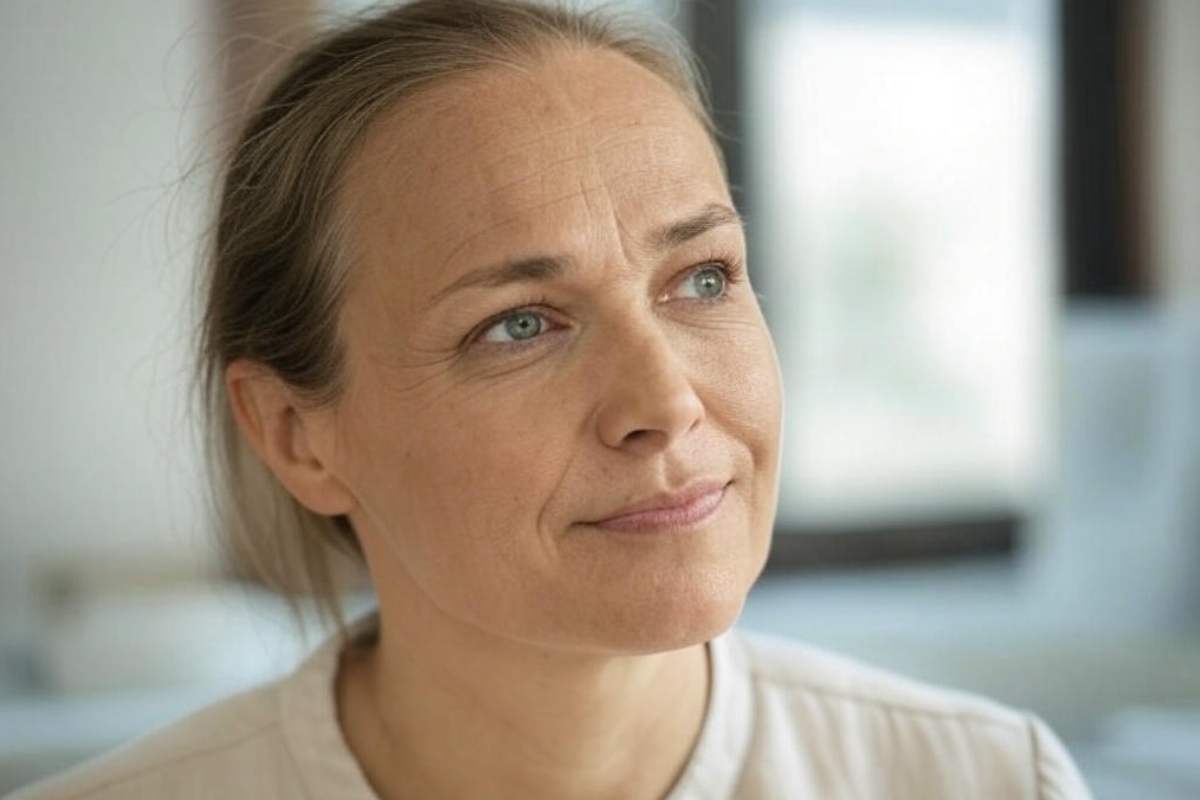Menopause causes hormonal changes, leading to hair loss in some women. It is a common symptom due to decreased estrogen levels. Despite this, menopause-related hair loss is a natural process for some women, and various strategies and treatments are available to manage and minimize its impact.
Table of Contents
Causes of Menopausal Hair Loss
Hormonal changes associated with menopause, such as a drop in estrogen levels, which encourages hair growth and preserves thickness, might be blamed for hair loss. Additionally, lowering estrogen levels may produce more androgens like testosterone, which can cause hair loss and thinning. A family history of hair loss or androgenetic alopecia increases the likelihood of hair thinning during menopause. Genetic variables also play a role in hair loss susceptibility.
Some Tips Beat the Menopause Hair Loss
Eat a Balanced Diet
Research indicates that women experiencing hair loss during menopause may not receive all the necessary nutrients. A well-balanced diet high in nutrients can help reduce hair loss, as it plays a crucial role in hormonal balance.
Practicing Physical Exercises
Physical workouts, such as cycling, walking, or jogging, yoga are beneficial for preventing hair loss and promoting hair growth since they assist in balancing hormones in the body and reduce stress.
Physical workouts can also assist with other menopausal symptoms like weight gain, sleeplessness, and mood changes. Examine all of the menopausal symptoms.
Eat Rich Selenium
One more best tip for Menopause Hair Loss is to overcome eating selenium-rich food like nuts. It helps keep our hair strong. It’s very healthy food.
Massages The Head
Scalp massages are the best tip for hair loss because scalp health is the most important. So mix ten drops of lavender essential oils and one tablespoon of avocado oil, mix well, then massage the head. This tip will have good results for your hair and scalp—massage causes hair loss medicine and decreases stress and headache.
Best Treatment for Menopause Hair Loss
MINOXIDIL Is One Of The Solution To Stop Menopause Hair Loss
The mechanism of action of minoxidil in hair loss is still not exactly known, but it has been observe in various clinical studies that the active ingredient improves hair growth .
It assume that the active ingredient minoxidil promotes the formation of new blood vessels, which makes them more permeable and leads to increased growth factors in the tissue.
Compared to men, even small amounts of minoxidil are sufficient for a positive effect in women. However, you should only take the remedy if your hair loss is cause by an excess of male hormones . It is therefore essential to clarify the cause of your hair loss with your family doctor or a specialist before taking it.
One minoxidil supplement that’s popular with women is Johnson & Johnson’s Rogaine solution.
Hormone Replacement Therapy
If you’re losing hair as a outcome of menopause, your doctor may recommend hormone replacement therapy (HRT) to compensate for the hormone deficiency. It is important that you weigh the pros and cons of this treatment against each other.
It is consider to be quite reliable for typical symptoms of menopause, including hair loss. However, combined therapy with estrogens and progestins increases the risk of developing breast cancer. Those who already belong to the risk group should avoid hormone therapy.
This also applies to people with an increased risk of cardiovascular disease. Women over 60 should not take HRT. The best time to start is within the first ten years of menopause. However, let your gynecologist explain this to you in detail beforehand.
New And Effective: Mesotherapy Supplies Vital Substances
Mesotherapy is a new method for anti-aging skin treatments, injecting vital substances and medicines into the skin using wafer-thin needles. This method also involves injecting blood plasma, which is centrifuged from the patient’s blood to deposit a liquid rich in stem cells. The results are promising, with hair not falling out and hair being shiny and strong.
Conclusion
Menopause-related hair loss affects around half of all women, primarily due to a drop in hormone levels during perimenopause and post-menopausal years. Hormones like estrogen and progesterone impact hair growth, strand volume, and shedding. Other health factors can also contribute to hair thinning, so discussing excessive hair shedding with a healthcare provider is crucial.

